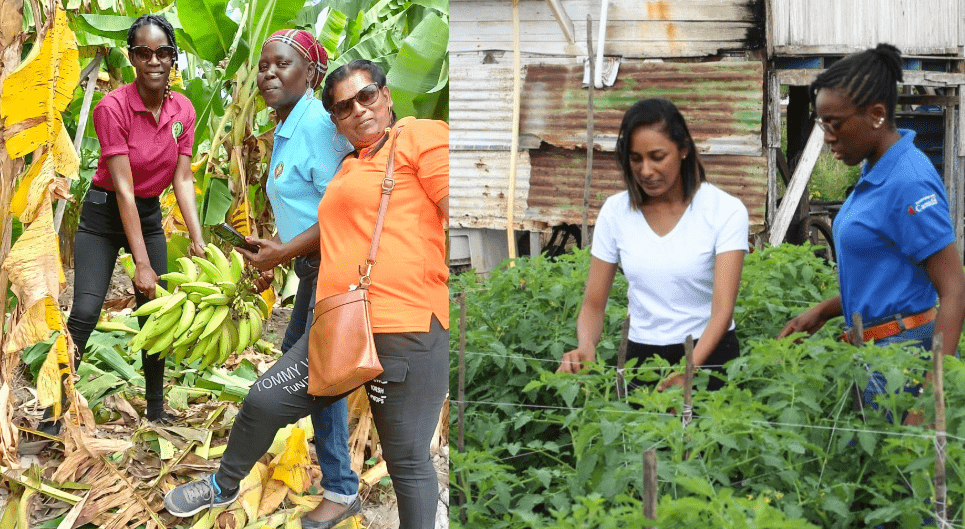Copyright inewsguyana

The Guyana Government has set a target that by 2030, at least 50% of newly-established agriculture-based business ventures must be led by women and young people. This was revealed on Tuesday by Minister of Agriculture Zulfikar Mustapha during his address at the commissioning of the Micro and Women Entrepreneur Learning Centre at the Georgetown Chamber of Commerce and Industry (GCCI). Minister Mustapha quoted a 2022 survey done by the Ministry of Agriculture which found that women account for 33% of farmers across the country. “Although agriculture is often viewed as a labor-intensive and male-dominated field, Guyanese women over the years have always been integral into this sector, from planting and harvesting in our rice fields and sugar estate, to tending kitchen gardens, rearing livestock, and running agri-processing ventures,” the minister expressed. Nevertheless, he noted that the Guyana Government wants to ensure more women and young people get involved in agriculture and has implemented several programmes in order to achieve this objective. “Today, under our Agricultural Diversification Strategy, 35% of participants are women and 30% are youth,” the minister noted. He also pointed to the Black Belly Sheep programme which the Guyana Government has rolled out in conjunction with Barbados. “We have presently 20% of farmers in that project are women, 35% are young people. As a matter of fact, we were given an instruction that all projects under the Ministry of Agriculture, economic projects, must include not less than 35% women and youth,” the minister emphasised. He further disclosed that the Agriculture Innovation and Entrepreneurship Programme has constructed over 300 shade houses nationwide to cultivate high-volume crops such as broccoli, cauliflower, and carrots, with over half of its beneficiaries being women. “And here again, I want to tell you, because, this area might seem small. In 2021, Guyana imported approximately $2.6 billion in these high-volume crops for the hospitality industry and the other areas in our country. Today, since we have started this programme, that investment that we have put in this programme, is tremendous, and we have seen a steep decline in importation of these crops. We are now supplying the oil and gas industry and the hospitality industry. We have hundreds of young people and women that are involved in this activity,” he highlighted. Additionally, the minister pointed out that the Hinterland Environmentally Sustainable Agriculture Development Programme, valued at US$11.1 million, ensures that 50% of its beneficiaries are women. “And this programme is in the hinterland communities, 243 hinterland villages, supporting ventures in cattle rearing, poultry, crops, agriculture, agro-processing, bakeries, and ecotourism,” he posited. The Agriculture Minister also reference the ‘One Guyana’ cut rose project being executed by the National Agricultural Research and Extension Institute (NARE), which generates employment for single mothers. The project, he noted, now produces approximately 400 roses per week, reducing import by 30%. Moreover, the minister said the Guyana Government, in collaboration with international partners, is implementing a gender-responsive Climate Smart Agriculture and Food System in the Caribbean project, which promotes climate smart technology while prioritising the needs of women, youth, and producers’ associations. “These initiatives include optimising the shade house system for vegetable crops production, strengthening the dragon fruit value chain through community farming, and enhancing productivity through an integrated risk-duck farming system. These projects are not just statistics, they represent real lives and livelihoods being transformed through innovation, opportunities, and empowerment,” he said. According to Minister Mustapha, Guyana’s agricultural sector is undergoing tremendous transformation through record investment, climate smart practices, value-added production, and inclusive development. “Our five-year agriculture plan focuses on empowering women and youth through training, start-up support, and access to agri-tech, strengthening market systems and value chains, promoting climate smart innovation and sustainable practices, and expanding agro-processing to reach regional and global markets,” he expressed, noting that the GCCI’s Micro and Women Entrepreneurial Learning Centre will play a critical role in advancing these goals.



